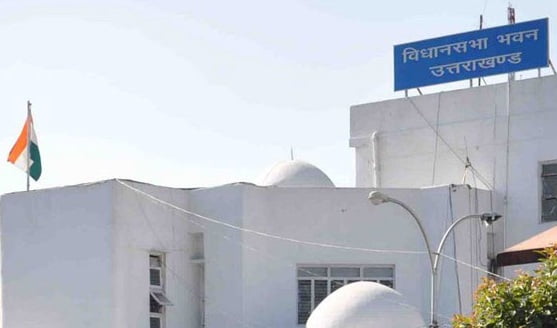The government of Uttarakhand has made the anti-conversion law more stringent. The government has amended it and made a provision of 10 years in jail. In the previous law, there was a provision of punishment of 5 years for forced conversion.

The government of Uttarakhand has amended the Uttarakhand Freedom of Religion Act, 2018 to form the Uttarakhand Freedom of Religion (Amendment) Act, 2022. This decision to amend the old Act was taken in the cabinet meeting under the chairmanship of Chief Minister Pushkar Singh Dhami.
The state government will bring a bill related to the amendment in the upcoming assembly session. The state government has also approved an amendment making it a cognizable offense with a jail term of 10 years.
The state government is bringing a strict law against forced conversions. Regarding this, the state’s Culture and Religion Minister Satpal Maharaj presented the Uttarakhand Religion Freedom (Amendment) Bill 2022. In this bill, a provision has been made for non-bailable punishment of 10 years if convicted of mass religious conversion.
Severe Punishment
On being found guilty, a provision has been made for imprisonment ranging from a minimum of three years to a maximum of 10 years. The perpetrator of the crime may have to pay a fine of at least five lakh rupees, which will be given to the victim. According to the Bill, ‘no person shall attempt to convert any other person from one religion to another, either directly or indirectly by force, inducement or fraudulent means. No person shall abet or conspire for such conversion.
Stating the objectives and reasons for the Religious Affairs Bill, Minister of State Satpal Maharaj said that the right to freedom of religion, under Articles 25, 26, 27 and 28 of the Constitution of India, seeks to equally strengthen the importance of each. For religion, amendment in Uttarakhand Freedom of Religion Act, 2018 is necessary.
In India, Odisha was the first state to implement such a law in 1967, followed by Madhya Pradesh in 1968. The anti-conversion law could not be implemented in Arunachal Pradesh due to lack of supporting rules. While Rajasthan has passed an anti-conversion bill, it is yet to get the assent of the President.
The Indian government is proposing a national anti-conversion law. Such laws, already in force in eight of India’s states Odisha, Chhattisgarh, Gujarat, Haryana, Himachal Pradesh, Jharkhand, Karnataka, Madhya Pradesh, and Uttar Pradesh.

I could not resist commenting. Exceptionally well written!